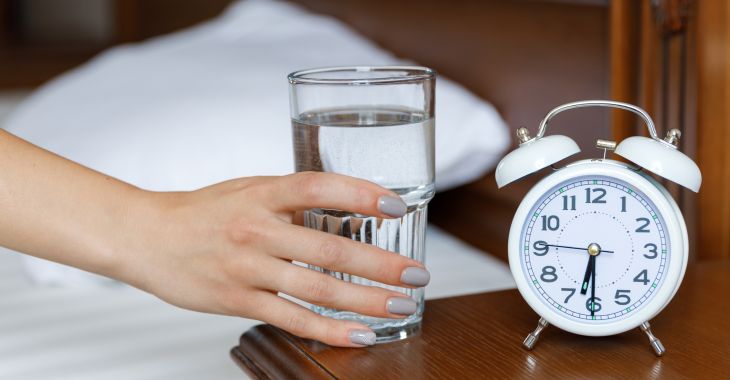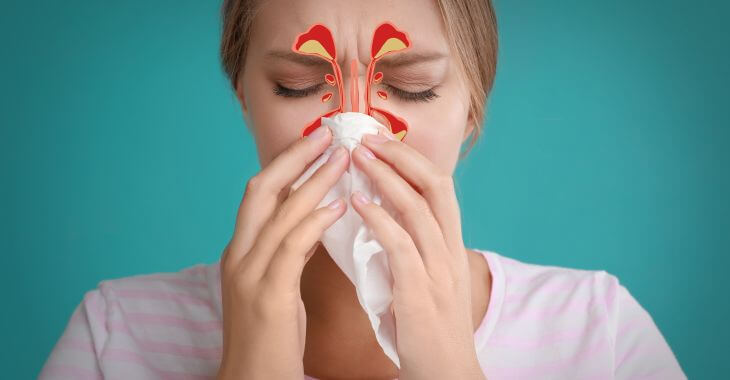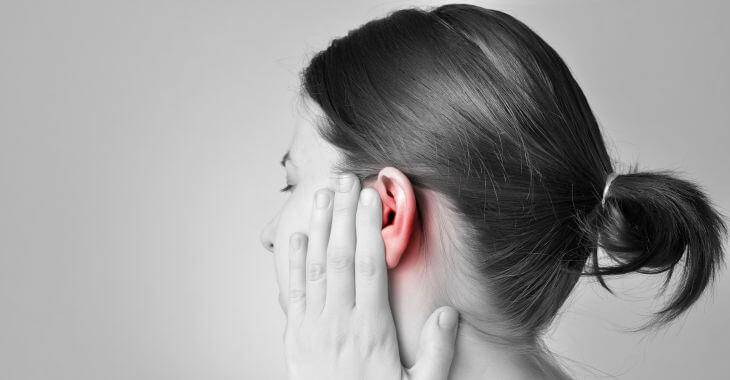Are You Tired of Waking Up with Dry Mouth?

Waking up with dry mouth in the mornings is an unpleasant way to start your day. Plus, dry mouth can wake you up throughout the night and cause bad breath and other oral health problems. If you want to know how to prevent dry mouth while sleeping, you need to know what causes this issue. Here is what you need to know about what causes nocturnal dry mouth and what you can do to prevent this irritating condition.
Dry mouth, or xerostomia, is a common problem. Many people experience it occasionally when they are sick or other issues cause slight dehydration, but if it happens nightly, it needs to be addressed. A dry mouth is an unhealthy condition. Salvia is needed to help maintain healthy teeth and gums and it helps prevent dental problems by minimizing plaque formation. If you are constantly waking up with dry mouth, you may also experience bad breath, mouth sores, thrush, taste changes, sore throat and difficulty swallowing.
What Causes Dry Mouth While Sleeping?
If you want to stop dry mouth in the mornings, you need to first identify the cause. There are a few different reasons you may be experiencing chronic dry mouth at night. One reason is mouth breathing. If you sleep with your mouth open to breathe due to nasal congestion, sinus problems or sleep apnea, you are more likely to wake up with a dry mouth. Some of the other possible causes of dry mouth at night include:
- Aging. Did you know that you produce less salvia as you get older. Xerostomia is common among people over 65, as salvia can be reduced by up to 40% as you reach your golden years.
- Medications. About 60% of prescription medications list dry mouth as a possible side effect. Some common medications that cause dry mouth include antidepressants, antihistamines, hypertension medications and weight loss drugs.
- Cancer treatments. Both chemotherapy and radiation can cause dryness in the mouth, one of the many side effects of these cancer treatments.
- Medical conditions. People with diabetes, Sjogren’s syndrome, deviated septum and nerve damage may experience dry mouth as a symptom of their medical condition.
- Recreational drug use. Many stimulants and recreational drugs like marijuana may cause dry or “cotton mouth.”
- Smoking or vaping. Both smoking and chewing tobacco products can result in dry mouth. The new alternative, vaping, can also cause dry mouth.
- Alcohol consumption. If you drink too much alcohol, it can cause dehydration and dry mouth.
If you can identify the cause, you can determine if it is something that can be changed. While you cannot help growing older, you can seek treatment for conditions like sinus problems, sleep apnea or nasal congestion that keeps your mouth open at night. You can also try eliminating medications or drugs that cause dry mouth – make sure to talk to your doctor before discontinuing any medications prescribed for your health.
How to Prevent Dry Mouth While Sleeping
Before seeking medical treatment for xerostomia, you may want to try some lifestyle changes to conquer waking up with dry mouth. Besides changing or stopping medications and quitting smoking/vaping, you can try some home remedies and life changes that may give you relief. Some tricks to keep your mouth moister throughout the night can include:
- Practice sleeping with your mouth closed
- Suck on a sugar-free candy or throat lozenge
- Keep a bottle or glass of water on your bedside table for nighttime thirst
- Limit alcohol intake and drink more water before you go to bed if you consume alcohol
- Limit caffeine intake – it can make dry mouth worse
- Add a humidifier to your bedroom if the air is dry
These home remedies and lifestyle changes can be useful for managing dry mouth. But if these changes do not help and you are still waking up with dry mouth in the morning, you may want to talk to your doctor. If the underlying cause of your xerostomia is sinus problems or medical conditions, you may be able to receive treatment to resolve it. Some medical treatments that may be recommended by your doctor to help relieve your dry mouth include:
- Sinuplasty can offer relief for chronic sinusitis
- Septoplasty can improve nasal breathing for those with a deviated septum
- Your doctor may be able to change your medications to avoid dry mouth side effects
- Prescription treatments for low salvia are available
- Artificial salvia
- Toothpastes and mouthwashes for dry mouth

If you are tired of waking up with dry mouth, there are solutions. Start by narrowing down the cause of your condition and trying some lifestyle changes and OTC options to get relief. If you need further assistance, see your primary care physician or a specialist for sinus or other conditions that are causing your xerostomia.
The information provided on this website, including text, graphics, images, and other materials, is intended solely for informational purposes and should not be used as a substitute for professional medical advice, diagnosis, or treatment.




)